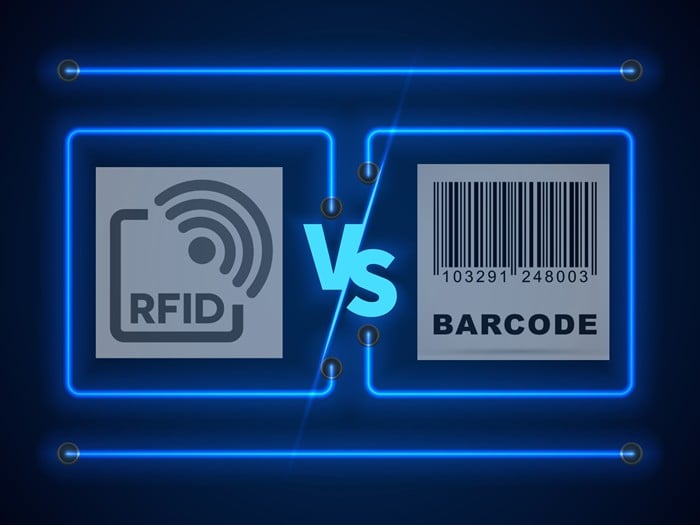From Seed to Sale: How RFID Is Streamlining the Cannabis Industry (Part Two)
November 8, 2022
Last week, we discussed how cannabis businesses can ensure brand protection with authentication and radio frequency identification (RFID) solutions. Cannabis brand protection is a big concern for growers. Just like several other consumer brands, cannabis has become susceptible to counterfeits, diversion, security issues, product defects, legal action, and regulatory compliance.
Adopting RFID technology for inventory management in any industry can save time and money by offering real-time inventory analysis. In cannabis, RFID technology provides a drastic increase in accuracy and a corresponding decrease in errors, which improves efficiency and return on investment (ROI).
Barcodes are easy to miss, easy to double scan, and can be covered by the dirt and grime so prevalent in grow environments. But a properly implemented RFID solution can provide more than 99% accuracy.
RFID Tags vs. Barcodes: What Is More Cost-Effective?
When it comes to product tracking, two popular options are RFID tags and barcodes.
Barcode scanners require a line of sight to scan each code individually. Manual and barcode-based tracking and inventory operations can take hours or even days to complete.
On the other hand, RFID scanners can read multiple codes at once. RFID-based systems are much more efficient at scanning a large number of items. While they can be more expensive and require more initial setup than barcodes, RFID tags are proven to be more cost-effective in the long run. Plus, barcode systems are often less durable and less secure than RFID.
RFID can be used to monitor the quality of a product from the time it leaves the manufacturing facility through to the distribution center and the retailer. The tags can be programmed to monitor the temperature and other environmental factors that can affect the quality of cannabis. If the data collected from the tag shows the product was stored in a suboptimal environment for extended periods, it may be considered compromised and get pulled from the shelf. In contrast, barcodes are read-only, whereas certain types of RFID tags can receive additional information after they are created.

Sustainability of RFID
Sustainability is a big concern when it comes to RFID tags. Modern RFID tags provide up to a 40% decrease in carbon footprint. They are also competitive with traditional inlay options in both performance and cost, making them the sustainable choice for businesses concerned about their ecological footprint.
Our eco-friendly RFID and near field communication (NFC) tags are part of a sustainable Internet of Things (IoT) ecosystem aimed to protect the planet with the industry’s lowest carbon footprint. These tags are non-etched, paper-based inlays that decrease the traditional use of polyethylene terephthalate (PET)-based substrates and byproducts.
This tag ecosystem is manufactured on renewable paper, without plastic layers and harmful chemicals, and boasts the industry’s lowest carbon footprint available today. As the antenna is patterned in an innovative laser manufacturing process, all excess aluminum is completely recycled, and the paper used is fully repulpable.
Moving Forward
With its unique capabilities, RFID technology is considered an integral tool for the cannabis industry, empowering solutions that address both strict regulations and the everyday business needs of operators.
RFID promises huge benefits for the cannabis industry that range from tracking individual plants to real-time inventory monitoring of thousands of plants to business intelligence capabilities that can integrate with systems for plant lifecycle management, product inventory, and more.
As the world’s most customer-focused, innovative transponder designer and manufacturer, our eco-friendly ecosystem continues a legacy of flexibility and customization, and our RFID and NFC tags for the cannabis industry are available in various sizes and customizable antenna designs.
Book a meeting with an RFID expert today to learn more about our technology solutions for the cannabis industry.